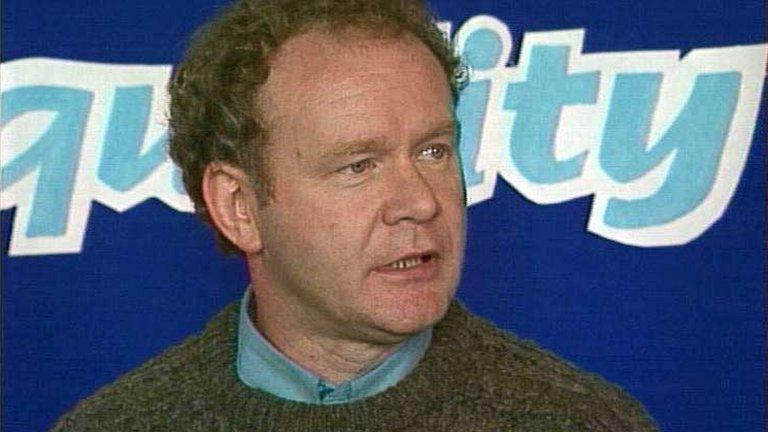Martin McGuinness: Ex-deputy first minister will not stand in NI election
- Published
Martin McGuinness will not stand in the upcoming election
Martin McGuinness, former IRA leader turned peacemaker, has confirmed he will not stand in the Northern Ireland Assembly election.
He quit as deputy first minister in a row over a botched green energy scheme, sparking an election on 2 March.
He had been in the post since entering NI's power-sharing assembly in 2007 with ex-political enemy Ian Paisley.
Mr McGuinness, 66, has been ill for a number of weeks and said this was a factor in his decision.
Mr McGuinness told the BBC that he had faced a "big decision" over his future and that he will never again be "an elected representative" in politics.
Martin McGuinness, from paramilitary to politician
"The question I ask myself is: Are you capable, are you physically capable, of fighting this election with the intensity that elections need to be fought?
"And the honest answer is that I am not physically capable or able to fight this election, so I will not be a candidate."
He added that his successor as Sinn Féin's leader in Northern Ireland would be announced "next week".
'Polar opposite backgrounds'
Prime Minister Theresa May said Mr McGuinness "played a key role in moving the republican movement towards a position of using peaceful and democratic means",
"I want to send him best wishes for his retirement," she added. "We will all continue to work to make sure that the people of Northern Ireland are able to live freely and in peace."
Democratic Unionist Party (DUP) leader Arlene Foster, who lost her position as first minister when Mr McGuinness resigned, said that he had been a "major figure" in Stormont.
"While never forgetting the past, I believe the work at Stormont provided the foundations for our relative peace today.
"Despite all that has happened, I wish Martin McGuinness a speedy recovery and that he and his wife are able to enjoy time with their family away from the relentless focus of public life."
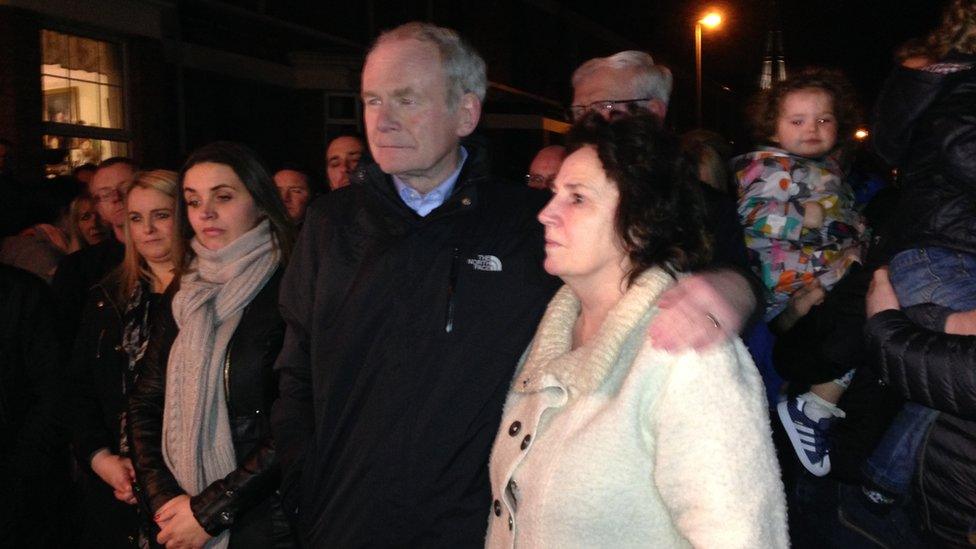
Martin McGuinness, and his wife Bernie, greeting people who gathered outside his house on Thursday night
Former first minister Peter Robinson, who worked with Mr McGuinness at the head of Northern Ireland's government for seven years, said: "We came from polar opposite backgrounds but built up a relationship based on doing the best we could for all our people."
Taoiseach (Irish prime minister) Enda Kenny said that while he and Mr McGuinness "may not always have seen eye-to-eye on every issue" he would "readily acknowledge the remarkable political journey that he has undertaken".
Northern Ireland Secretary of State James Brokenshire said he was "sorry to hear" about Mr McGuinness' decision.
Details of Mr McGuinness' condition have not been disclosed officially by Sinn Féin but Irish national broadcaster RTÉ has reported that he has a rare heart condition.

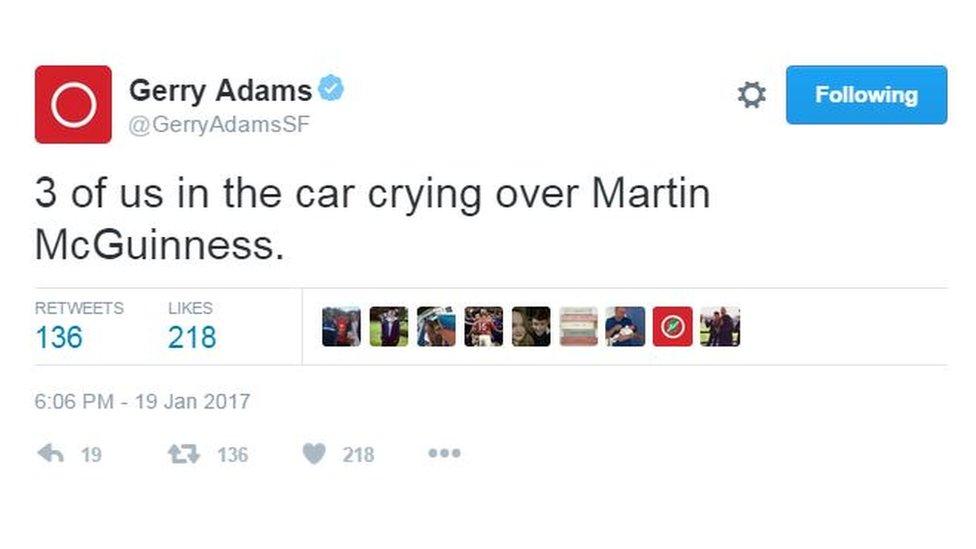

Mr McGuinness said the illness had taken its toll but that he was "determined to defeat it".
"I'm also very determined to continue to play a political role - it won't be an electoral role although in the election I will be wholeheartedly behind the Sinn Féin candidates and the new leadership."
Sinn Féin president Gerry Adams expressed his "heartfelt thanks" to Mr McGuinness and said he needs to take "time out to get better for himself, for his family and for our struggle".
Martin McGuinness on DUP and reconciliation
"On behalf of Sinn Féin and republicans everywhere I want to send him our best wishes.
"Give him the space to get better and (we'll) increase our efforts so that when he returns the process of change has advanced."
Mr McGuinness resigned in protest after former first minister Arlene Foster refused to step aside for an investigation into a Renewable Heat Incentive (RHI) scheme.
The row over the scheme surfaced a range of other issues, including the Irish language and gay rights, that divide Northern Ireland's two power-sharing parties - the DUP, led by Mrs Foster, and Sinn Féin.
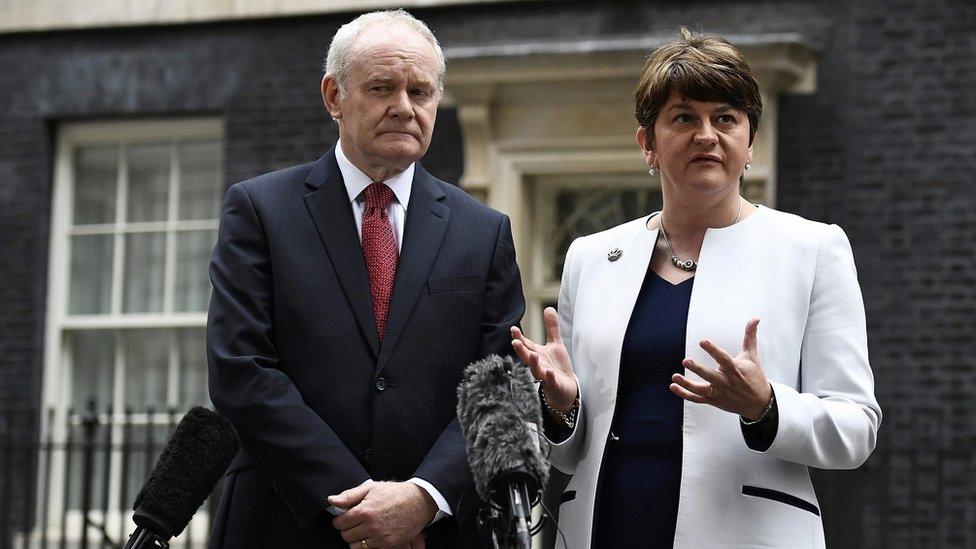
The DUP's Arlene Foster and Sinn Féin's Martin McGuinness were at the head of Northern Ireland's power-sharing government
Mr McGuinness' resignation, and Sinn Féin's refusal to nominate a replacement seven days later, has led to a snap Northern Ireland Assembly election on 2 March and the fall of the Northern Ireland government institutions.
The former deputy first minister said the institutions are "restorable" after March's election but it will pose "particular challenges to everybody, but more so the DUP".
During his interview with the BBC, Mr McGuinness said he was disappointed that the "reaching out I had done", such as meeting the Queen in 2012, were not reciprocated by the DUP.
"I don't actually remember the last time I ever heard a member of the DUP use the word reconciliation," he said.
He added that a "particular disappointment" was that Mrs Foster turned down an offer to attend both a Northern Ireland and Republic of Ireland football match with him at last year's European Championships.
"They refused to go. I wasn't asking her to go to a 1916 commemoration, it was a football match, it was an opportunity to reach out. Arlene went to the Northern Ireland match and I went to both."
- Published19 January 2017
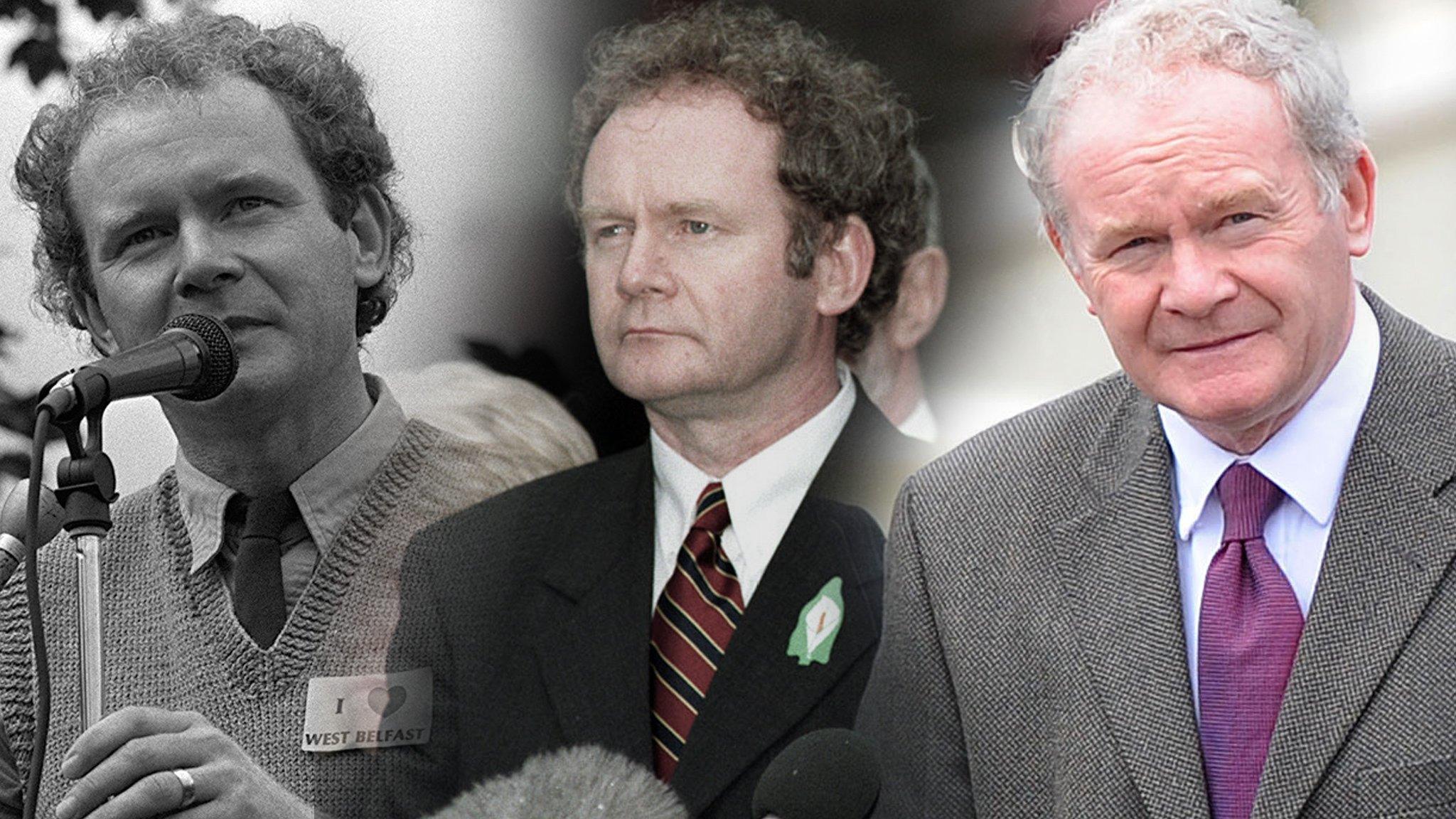
- Published19 January 2017
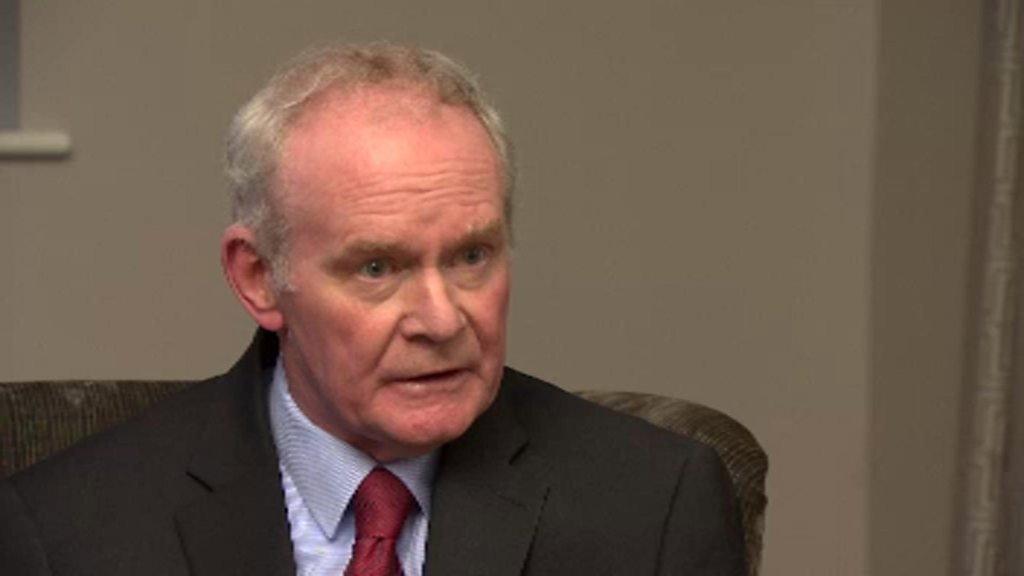
- Published20 January 2017
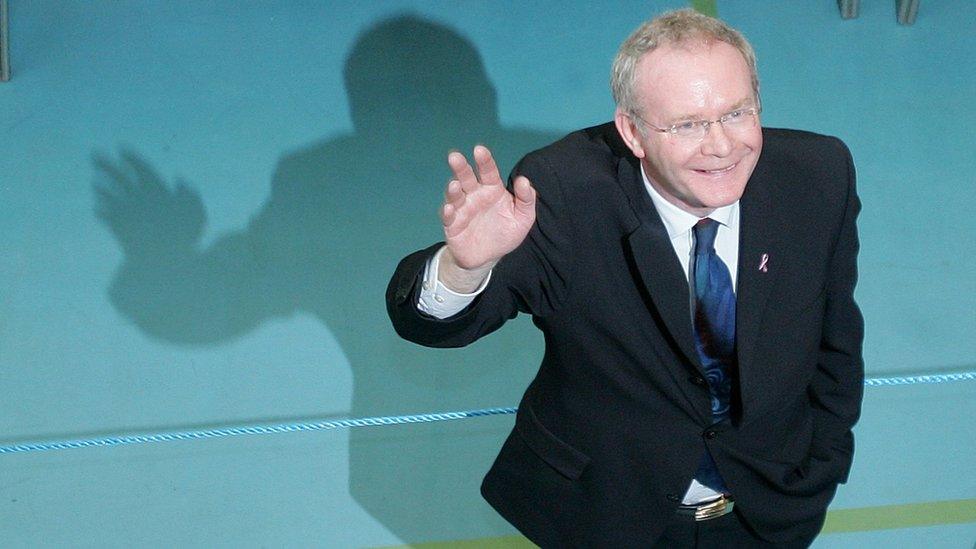
- Published19 January 2017
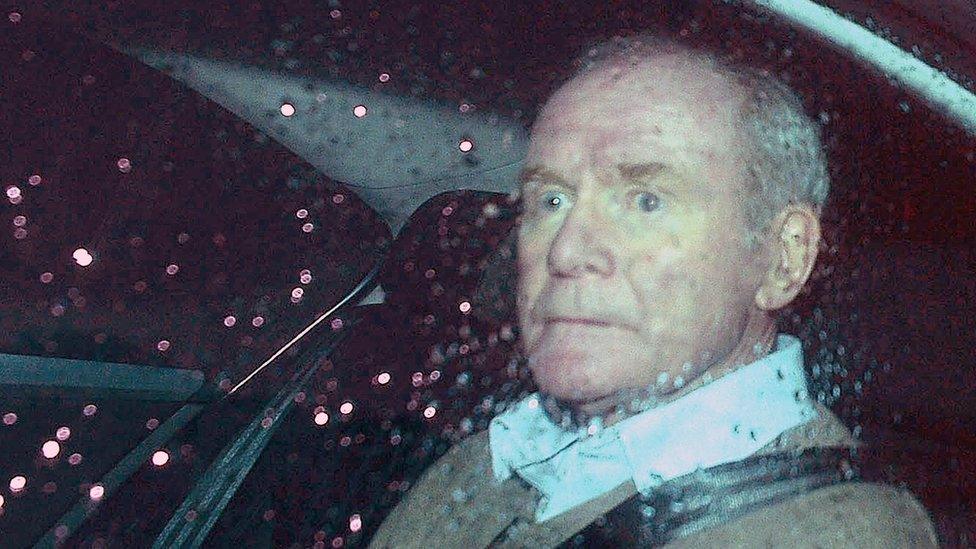
- Published21 March 2017
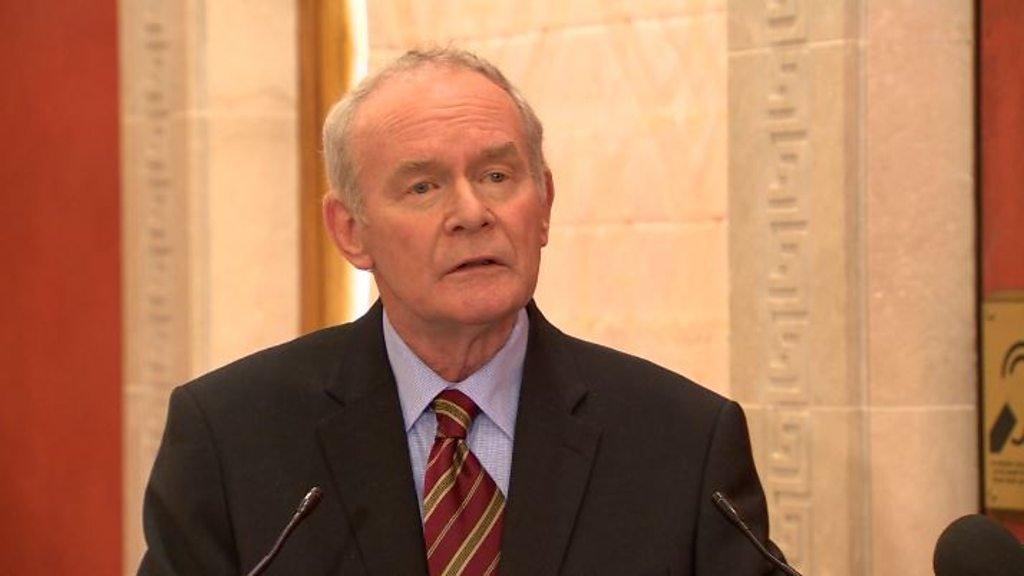
- Published16 January 2017
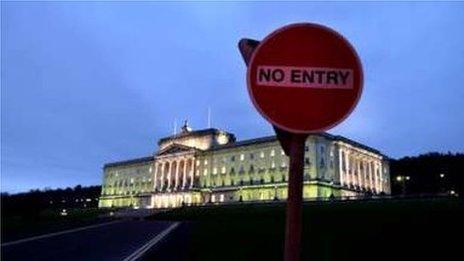
- Published10 January 2017
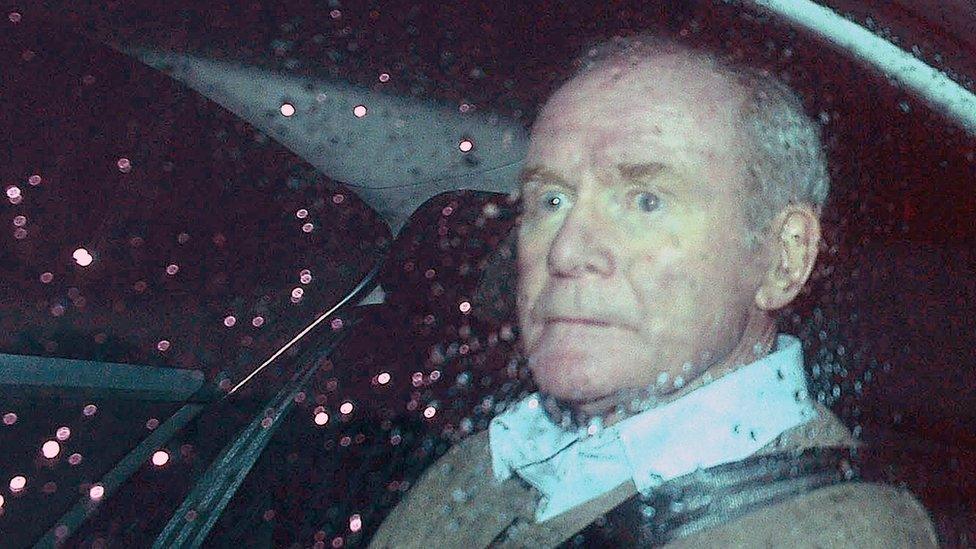
- Published8 April 2014
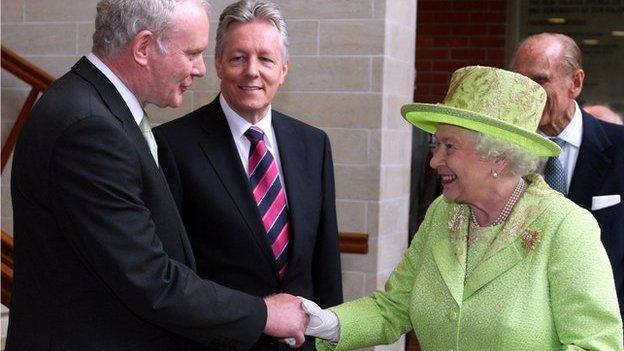
- Published22 June 2012
